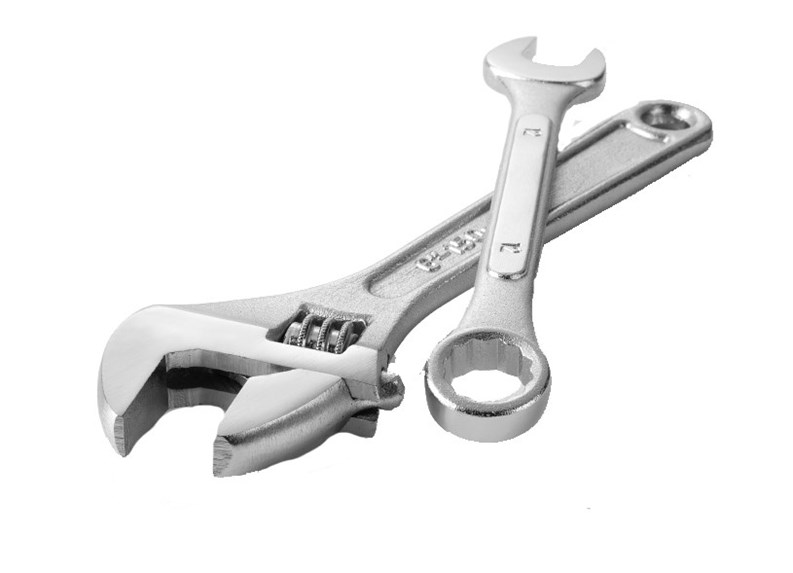Locked out? Need your heat fixed? Perhaps your apartment has a problem with multi-legged creatures. Who are you going to call? Your building superintendent, of course. Your super is there to repair the broken, find the missing, and restore order when things go haywire.
Years ago, a New York City building superintendent might also be called "the handyman," "the janitor," "the maintenance man," or "the porter" and was called upon by residents to make repairs and keep the building fully operational.
"When I was a boy before World War II, most supers lived in the basement of the buildings they worked for," says Dick Koral, secretary/treasurer for the New York City Superintendents Technical Association, formerly known as the Superintendents Club of New York, a non-profit technical society that works to educate and professionalize building superintendents, resident managers, handypersons, porters, and other multifamily building support personnel in the New York City region. "They had large families down there, too. Pay was very low, benefits non-existent, and they shoveled coal into the old boilers."
Fortunately, times have changed. Today, building superintendents have moved out of the basement and into healthier, more spacious living quarters that fit the needs of their family. In many buildings - particularly high-end luxury buildings - there is a definite hierarchy among building staff, with the superintendent firmly on top. In addition to that, most New York City superintendents are also now unionized, have access to healthcare and can earn a respectable salary.
The super's job responsibilities have expanded, too. Along with the managing agent, the super helps to keep the building operating smoothly by not only performing minor repairs, but also overseeing building staff and maintaining the building's basic operating systems. Overall, the super has a significant say in how well the building functions, both mechanically and as a workplace and home.
To fully perform these job responsibilities, a superintendent should have experience in all of these areas and other less obvious - though no less important - skills, especially communication. "There are many skills that a well-qualified superintendent needs to possess," says Joseph Hill, resident manager of Trump Plaza, a 200-unit luxury co-op on Manhattan's East Side, "such as a good mechanical background, the ability to manage staff, and strong communication skills when dealing with shareholders, the board of directors and the management company."
"Job descriptions vary from building to building however," continues Hill. "For example, if you have a small property with four employees - say, three doormen and yourself - you would be expected to do almost all the work. If, on the other hand, you managed a high-end luxury building, with a staff of twenty employees you would delegate the work to your handymen, porters and so forth."
To gain the necessary experience as a super for either small properties or high-end luxury buildings, most superintendents begin their careers as porters or handymen. Here they achieve on-the-job training that helps them to climb the ladder to superintendent. One also could tap the maintenance staff of hospitals, schools and other large institutions. It's key to check references of prospective candidates and make sure they are presentable and have good communications skills. Experience is a good barometer and someone from a skilled trade is probably a good choice.
"[A porter or handyman] learns every aspect of the physical plant, says Koral, and if he shows aptitude to deal with tenants - which is a critical skill - he may be promoted to super," said Koral.
When searching for a new superintendent, the property manager or managing agent will begin the interview process with a number of qualified applicants and present several candidates to the building's board of directors, who will then continue interviewing and make a final decision.
"Every building has different needs," says Margie Russell, the executive director of The New York Association of Realty Managers (NYARM). "Not only do they take into consideration the employee's particular level of experience and education, but the building will dictate the necessary level of experience and education a superintendent must have."
Although a college education is not necessarily required to be an effective, successful super, more superintendents are taking continuing education courses as the work environment and world change. "For example," says Hill, "while computer skills and [experience with] some form of security detail planning may not have been a job requirement 10 years ago, today they are a must."
Supers have lots of educational opportunities to expand their know-how and enrich their experience, including building maintenance courses and the Superintendent/Resident Manager I and II certification programs offered by SEIU Local 32BJ, the tri-state area's building service union, representing 70,000 cleaners, doormen, porters, maintenance workers, window cleaners, security guards, superintendents, and theater and stadium workers in New York, New Jersey, and Connecticut. The union also runs the New York Safe & Secure program, which provides building service employees with four hours of security awareness training to teach employees to be aware of suspicious behavior and packages and what to do in case of a building emergency.
The Department of Housing Preservation and Development (HPD) also offer programs like the Fundamentals of Residential Property Management Series and Intermediate and Advanced Residential Property Management and Maintenance Series. These courses are described as being targeted towards people who are interested in gaining in-depth knowledge about the management and maintenance of multi-family residential properties.
The Fundamentals series coursework include classes like Introduction to Building Systems, and How to Safely Use and Maintain Construction Tools. The Intermediate series is designed to help participants develop a comprehensive management and marketing plan; to learn to effectively work with and evaluate the work of their employees and how to set organizational objectives. Courses include Maintenance of Building Systems/Physical, Building Finance, Working With Tenants, General Construction, Hands On-Electrical Systems, and Hands-On Plumbing Systems.
Upon completion, participants can obtain a Certificate in Advanced Building Management, but must complete a specific number of courses/seminars, including Fair Housing, Water & Energy Conservation, and Environmental Health for Owners/Managers.
NYARM offers a certification course for property managers that superintendents can complete, according to Russell. NYARM, in association with New York University's Real Estate Institute (NYU REI) in its School of Continuing and Professional Studies, conducts a professional realty management program that provides training for building owners, managers, supervisors and maintenance personnel in building management.
The New York City College of Technology's The Apartment House Institute also provides a variety of education and information services to owners, managers, and superintendents of multifamily buildings, as well as individuals who have significant input into operation and maintenance of these buildings. The Institute offers courses in management of affordable housing that leads to a Certificate in Housing Management.
Once hired, a superintendent may have the responsibility of an entire building crew, including handypersons, porters, concierge, and other staff. "A superintendent is the top of the maintenance operation," says Koral, but he still reports to an even higher authority: the property manager.
Proper communication between the superintendent and the property manager is vital to keeping the building running smoothly. "If I feel there is a serious enough issue at hand, I would inform the agent and board of directors by memo," says Hill, who keeps the property manager informed on the building through regular weekly reports and monthly reports at the board meetings. "This helps keep them informed on how the property is operating."
"A superintendent's success or failure is determined by the day-to-day operation of the property he manages," says Hill. "If you handle all work requests in a timely fashion and are proactive, you will succeed. However, if issues are not addressed, the shareholders will look to the management company and board of directors to find out why the super is not performing."
This is key to having a super on the premises 24/7. It's also the law. "It's a city law that any building over twelve units that has an owner who does not reside in the building must have super on the property 24/7 or a super that lives no more than 200 feet away," says Koral.
It's also important for a super to know his or her limitations, and to know better than to attempt a risky or exceptionally complicated repair project on their own, says Timothy Carr, vice president of Midboro Management in Manhattan. "The super needs to know their boundaries. If something is out of the realm of their ability, they shouldn't attempt anything. They may be trying to do the right thing, but it could blow up in their face."
While being in charge of operations in a large multifamily building is without question a lot of work, super-dom does have its advantages. One commonly added perk to a super's job is a rent- or mortgage-free apartment. "Many times, a cooperative will offer an incoming super a one-room or one-and-a-half room apartment, and a super with a large family just can't accept the job," says Koral. "However, in some buildings, the super has a three-bedroom apartment and can live there nicely. There are many outer-borough supers who yearn to [work in] Manhattan, because their kids can go to schools in good neighborhoods."
The work is hard and a super is always on call, but the salary can be substantial, depending on the size and location of the building, the super's responsibilities and whether he is part of a union. An annual salary estimate for an on-site super in a Manhattan high-rise is approximately $50,000, (not including tips), but can be as high as $100,000 in certain luxury apartments.
"Tips can be significant," said Koral. "Some people I've spoken to will fork over about $300 a year in tips to the super, handyperson and porters. If you have a building with several hundred units and each gave $300 a year, that adds up."
"A good super is worth more than you're probably paying him," says Carr. "A lot of the big buildings on the West Side don't want to lose their supers to the East Side, so some give huge bonuses, or other incentives," like parking space, or more spacious living quarters.
From roof to basement, the superintendent knows the building's ins and outs, nuts and bolts, and, most importantly, its residents. It's a superintendent's never-ending job to make certain that the building is running smoothly and its residents are content.







31 Comments
Leave a Comment